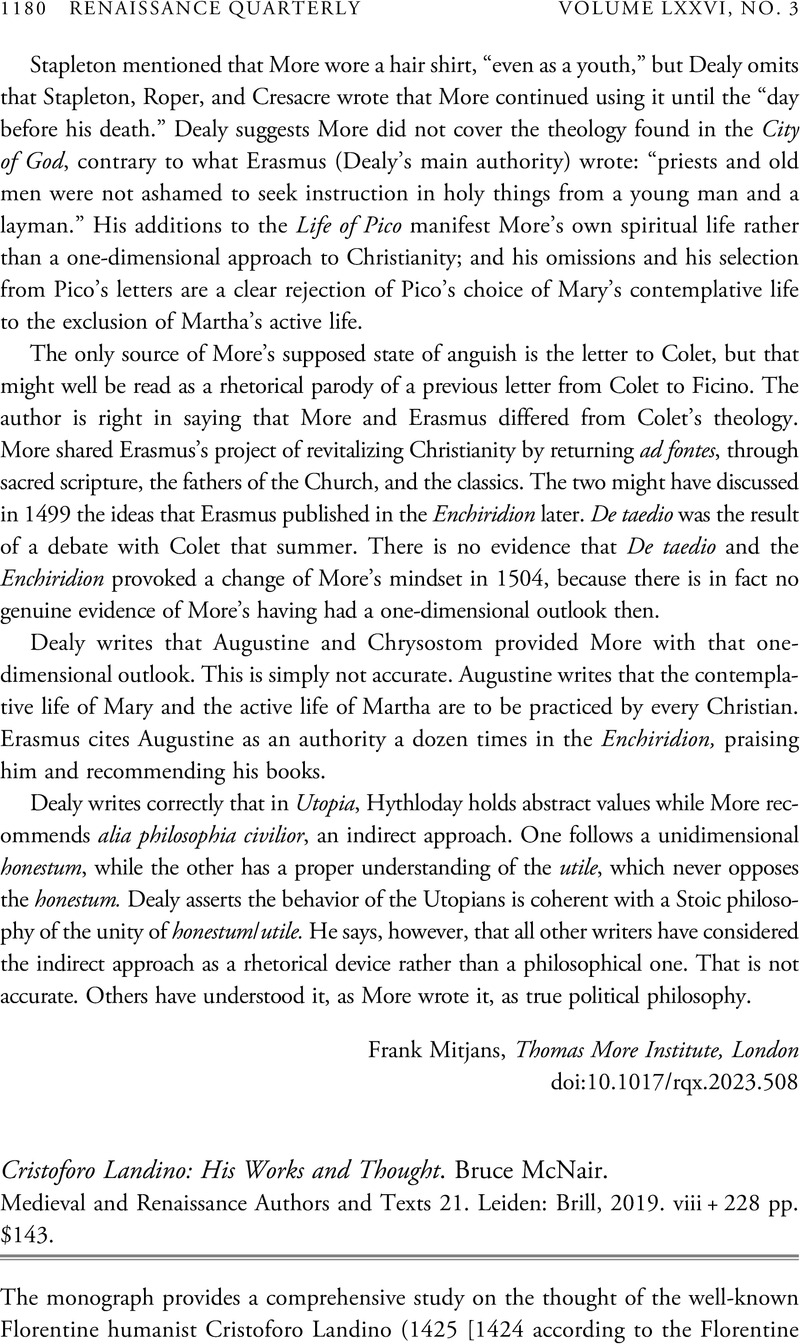No CrossRef data available.
Article contents
Cristoforo Landino: His Works and Thought. Bruce McNair. Medieval and Renaissance Authors and Texts 21. Leiden: Brill, 2019. viii + 228 pp. $143.
Review products
Cristoforo Landino: His Works and Thought. Bruce McNair. Medieval and Renaissance Authors and Texts 21. Leiden: Brill, 2019. viii + 228 pp. $143.
Published online by Cambridge University Press: 15 November 2023
Abstract
An abstract is not available for this content so a preview has been provided. Please use the Get access link above for information on how to access this content.

- Type
- Review
- Information
- Copyright
- Copyright © The Author(s), 2023. Published by the Renaissance Society of America



